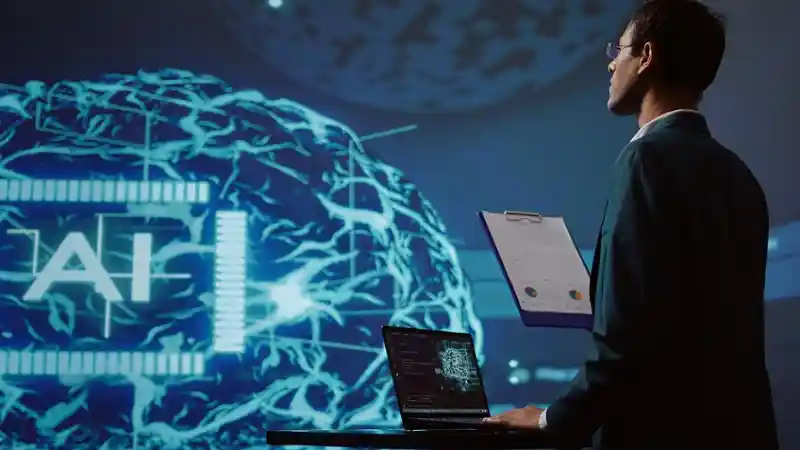In recent years, artificial intelligence (AI) has emerged as one of the most transformative technologies across industries. From automating mundane tasks to enabling groundbreaking innovations, AI continues to shape the future. However, the true power of AI lies not just in the algorithms and models themselves but in the people who build and manage these technologies. This is where the concept of “Aware AI teams” comes into play. Aware Ai Teamsfieldcnbc
In the context of AI development, an “Aware AI team” refers to a group of highly skilled professionals who possess a deep understanding not only of AI and machine learning but also of the broader implications of these technologies on society. These teams are characterized by their commitment to ethical AI practices, their awareness of potential biases in AI models, and their focus on creating solutions that benefit all of humanity. This article will explore the role of Aware AI teams, how they are reshaping the tech industry, and why they are essential for the future of AI development.
The Role of Aware AI Teams in the Tech Industry
AI has become a cornerstone of modern technological progress. From autonomous vehicles and healthcare innovations to personalized digital assistants and predictive analytics, AI touches almost every aspect of our daily lives. However, as AI continues to evolve, the need for diverse, responsible, and aware teams to guide its development becomes increasingly important.
1. Ethical Considerations in AI Development
One of the key areas where Aware AI teams make a significant impact is in the ethical considerations surrounding AI. AI systems can unintentionally inherit biases present in their training data, which can lead to unfair or discriminatory outcomes. Aware AI teams are dedicated to identifying and mitigating these biases during the development process, ensuring that AI systems are equitable and inclusive.
For instance, a major issue that has gained attention in the tech world is bias in facial recognition software. Several studies have shown that facial recognition technology performs less accurately on people of color, particularly Black and Asian individuals. This is often due to the lack of diversity in the data used to train these AI models. Aware AI teams are addressing this issue by ensuring that their datasets are representative of all demographic groups and by actively working on solutions to reduce these disparities. Aware Ai Teamsfieldcnbc
In addition to bias, AI systems must also be developed with privacy and security in mind. Aware AI teams are highly conscious of the potential risks that come with the collection and processing of vast amounts of personal data. They work to implement privacy-preserving techniques, such as differential privacy, and adopt secure development practices to safeguard user information.
2. Cross-Disciplinary Collaboration
Building AI systems that are not only functional but also responsible requires collaboration across various fields. Aware AI teams consist of professionals from diverse backgrounds, including computer science, ethics, law, sociology, and psychology. This cross-disciplinary approach ensures that AI solutions are both technically sound and socially responsible.
For example, AI developers work closely with ethicists to ensure that the technology aligns with societal values. Legal experts help navigate the complex landscape of AI regulations and data privacy laws. Sociologists and psychologists bring in a deeper understanding of human behavior and how people interact with AI systems, enabling teams to design user-friendly and ethically conscious products.
This collaboration between technical experts and domain specialists results in AI technologies that are better equipped to serve the needs of society, while also mitigating the risks associated with their use.
3. AI Transparency and Explainability
A key concern in the deployment of AI is the “black-box” nature of many machine learning models. In some cases, AI systems make decisions that are difficult to explain or understand, even by the developers who built them. This lack of transparency raises concerns about accountability, especially when AI is used in critical areas such as healthcare, law enforcement, and finance.
Aware AI teams are focused on improving the explainability of AI systems. They work on developing methods to make AI decisions more transparent, so that users can understand how and why a particular decision was made. This is especially important in high-stakes situations where AI may impact people’s lives. For example, in healthcare, an AI system that helps doctors diagnose diseases must be able to explain its reasoning to ensure that medical professionals trust its recommendations.
By focusing on transparency and explainability, Aware AI teams are working to build trust between AI systems and the people who rely on them, whether they are patients, customers, or users.
The Impact of Aware AI Teams on Innovation
In addition to ensuring ethical and responsible development, Aware AI teams also drive innovation. Their ability to combine technical expertise with a broader understanding of social issues allows them to create AI solutions that address real-world problems and push the boundaries of what is possible.
1. AI for Social Good
One of the most exciting areas where Aware AI teams are making a difference is in the field of AI for social good. These teams are developing AI-driven solutions to address some of the world’s most pressing challenges, including climate change, poverty, and healthcare disparities.
For example, AI models are being used to predict and mitigate the effects of climate change. By analyzing vast amounts of environmental data, AI systems can help identify patterns and trends that might otherwise go unnoticed, enabling policymakers and organizations to take proactive measures. Aware AI teams are also working on solutions to monitor and reduce carbon emissions, promote sustainability, and protect biodiversity.
In healthcare, Aware AI teams are working on AI-powered diagnostic tools that can detect diseases earlier and more accurately than traditional methods. These tools have the potential to save countless lives, especially in underserved regions where access to medical professionals is limited.
2. Advancements in Autonomous Systems
Another area where Aware AI teams are driving innovation is in autonomous systems, such as self-driving cars and drones. These systems rely on advanced AI models that enable them to navigate complex environments and make decisions in real time. However, the development of autonomous systems raises a host of ethical and safety concerns, especially when it comes to human lives.
Aware AI teams are at the forefront of addressing these challenges. They are working to ensure that autonomous systems are safe, reliable, and designed with human well-being in mind. This includes developing AI models that can make ethical decisions in situations where human lives are at risk. For example, an autonomous vehicle must be able to make decisions in split-second scenarios, such as how to minimize harm in the event of an unavoidable accident. Aware AI teams are working to develop algorithms that prioritize safety and ethical considerations in these critical moments.
3. Enhancing Human-AI Collaboration
Rather than replacing humans, many of the most exciting AI innovations are centered around enhancing human capabilities. Aware AI teams are developing systems that enable humans and AI to collaborate in ways that were once unimaginable. For example, AI-powered tools are being used to assist doctors in diagnosing diseases, lawyers in reviewing contracts, and engineers in designing complex structures.
These human-AI collaborations have the potential to revolutionize industries and improve outcomes in fields such as healthcare, law, and education. Aware AI teams are working to create tools that augment human abilities, making professionals more efficient and effective in their work.
The Future of Aware AI Teams
The future of AI is bright, but it is also filled with challenges. As AI continues to evolve, the role of Aware AI teams will become even more crucial. In the coming years, we can expect to see greater integration of AI into various sectors, as well as new advancements in areas such as quantum computing and deep learning. Aware AI teams will be instrumental in guiding this progress, ensuring that AI technologies are developed in a way that is both innovative and responsible.
1. Addressing Emerging Challenges
As AI becomes more pervasive, new challenges will arise. For instance, the increasing use of AI in decision-making processes raises questions about accountability and fairness. Aware AI teams will play a critical role in addressing these issues, ensuring that AI systems are not only effective but also just and equitable.
Additionally, the rapid advancement of AI technologies means that regulations and ethical guidelines will need to evolve. Aware AI teams will need to work closely with governments, industry leaders, and academics to develop frameworks that ensure the responsible use of AI.
2. Continued Focus on Diversity and Inclusion
To build AI systems that serve the needs of all people, it is essential to prioritize diversity and inclusion within AI teams. Aware AI teams are committed to fostering diverse work environments where individuals from different backgrounds can contribute to the development of AI solutions. This diversity is critical for identifying potential biases and ensuring that AI systems are designed with all users in mind.
3. AI Education and Awareness
As AI continues to play a central role in our lives, there will be a growing demand for AI education and awareness. Aware AI teams will help lead the way in educating the next generation of AI professionals, ensuring that they not only possess technical skills but also understand the broader implications of AI on society.
Conclusion
Aware AI teams are transforming the way AI is developed, implemented, and understood. By combining technical expertise with a commitment to ethical practices and social responsibility, these teams are helping to ensure that AI technologies are designed to benefit society as a whole. As AI continues to evolve, the role of Aware AI teams will only become more important in shaping the future of this powerful technology. Aware Ai Teamsfieldcnbc
Whether it’s addressing bias, improving transparency, or driving innovation in areas such as healthcare and climate change, Aware AI teams are at the forefront of ensuring that AI serves the greater good. The future of AI is bright, and with the guidance of these teams, we can look forward to a future where AI not only transforms industries but also makes the world a better place.






